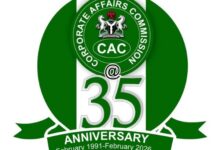Power Brand: Nigeria Loses 2,994MW To Gas Shortage
By Alphonsus E.W
 Shortage of gas, faults and maintenance works on plants have combined to reduce power generation in the country to 3,674.9 megawatts from the 6,668.6MW available capacity of the power stations as of Monday. Available generation records from the National Control Centre and the Transmission Company of Nigeria showed that 2,993.7MW was the quantum of electricity that the system was losing due largely to gas shortage.
Shortage of gas, faults and maintenance works on plants have combined to reduce power generation in the country to 3,674.9 megawatts from the 6,668.6MW available capacity of the power stations as of Monday. Available generation records from the National Control Centre and the Transmission Company of Nigeria showed that 2,993.7MW was the quantum of electricity that the system was losing due largely to gas shortage.
Since the handover of the Power Holding Company of Nigeria successor companies to new investors, the generation firms have been complaining of a drop in the supply of gas to fire their plants. The development has led to erratic electricity supply across the country although there have been promises of improvements in the near future.
About 80 per cent of the power plants, which are gas-fired, are deprived of regular gas supply. The Geregu, Omotosho and Olorunsogo plants with available capacities of 414MW, 126MW and 252MW could only generate 143MW, 81.2MW and 164.7MW, respectively due to gas constraints.
As of 6am on Monday, January 27, 2014, the Geregu and Omotosho National Integrated Power Project plants had available capacities of 435MW and 500MW but were only able to generate 60MW and 102.5MW, respectively due to low gas pressure.
The Sapele NIPP, with 250MW available capacity, was totally out due to gas constraints, loading problem and civil work on its basement. The National Control Centre, Osogbo, Osun State, said the 500MW Olorunsogo NIPP plant was also out due to gas constraints and maintenance after a commissioning test.
The Alaoji plant has also been shut down following a water injection test, while the Egbin Power Station, with 880MW available capacity, was on Monday generating 703MW. The NCC said generation at the nation’s largest power plant was limited by the inability of the Nigerian Gas Company to supply enough gas to it.
It said that Egbin’s installed available capacity was reduced because of an ongoing high turbine rotor vibration rehabilitation work. Also, the Sapele, Delta and Afam IV-V power plants, which on Monday had 120MW, 375MW and 75MW available capacities, could only generate 68MW, 346MW and 50MW, respectively due to low lube oil pressure, faults and maintenance works.
The Kainji Hydro Plant was totally out due to rehabilitation. The NCC said the rehabilitation of its 1G5 unit was ongoing as of Monday, while the 1G6 unit was already out for rehabilitation since December 6, 2013 and is expected back on December 31, 2014. The 1G7 unit was out on stator winding E/F, while the 1G8 unit was out on fault.
The 1G9 unit at the Kainji plant was also out due to upper guide bearing temperature problem, while the 1G10 unit was said to be out due to thrust bearing temperature but available for station service. The 1G11 unit of the plant was shut down on emergency due to abnormal noise in the unit, while the 1G12 unit was out for rehabilitation.
The Shiroro Hydro Plant was said to have an installed available capacity of 450MW as of 6am on Monday but could only generate 300MW due to ongoing repairs and overhaul. However, the power plant was shut for three days on Monday, and the problem is expected to last till Wednesday.
The General Manager, Public Affairs, TCN, Mrs. Seun Olagunju, said in a statement on Sunday that the shutdown of the station was to enable the engineering maintenance crew to rectify a ground fault on the station’s carbon dioxide control panel. The panel, according to Olagunju, provides vital auxiliary services necessary for the running of the Shiroro plant.
She explained that the control panel was a fire protection system for all the units in the power station and that if it was out on repairs, all the units would have no protection against fire outbreak, hence the need to shut all of them.
The statement read in part, “During the period, grid generation will reduce by 300MW, hence the nationwide load shedding. The impact of the load shedding will be higher in the northern part of the nation, especially Kano, due to voltage instability issues previously affecting power supply in that area.”
Similarly, the Jebba Hydro Plant had 385.6MW but was only able to do 327MW due to ongoing maintenance. The Managing Director, Korea Electric Power Nigeria Limited, the technical partner and managers of the Egbin Power Station, Mr. Gyoo Chull Yeom, who recently underscored the dire gas supply situation to the power plants, said, “Gas is not coming, and without this, the power plants cannot operate optimally. Gas supply is very important to the Nigerian power sector because almost 80 per cent of the power plants in the country are gas-fired.
“Inadequate gas supply is a big problem for Nigeria. Even with the private sector investment; if there is no enough gas supply, there will still be problems.”











